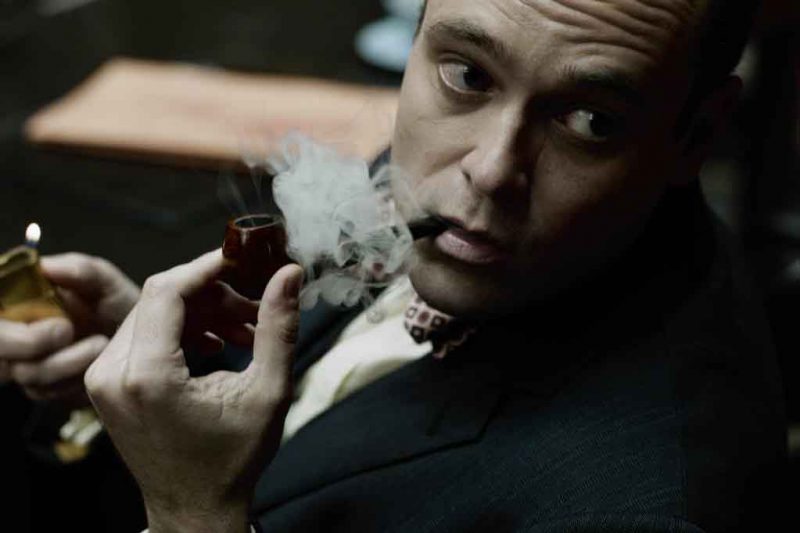Fallout of the Nation-State
We don’t like to recognize small ethnicities. We’d rather lump them in with the geographic and political influences we think should manage them. That, in turn, causes them to detest us.
Greece has blocked the NATO and EU ambitions of Macedonia for the past 18 years over a bizarre name dispute. The ongoing controversy threatens the very cohesion of the diminutive Balkan republic, which holds presidential elections this Sunday.
At first glance, Achlada, with its snow-white church, looks like a sleepy, idyllic Greek village. During the Ottoman era, however, Achlada was called Krusoradi, named after the Slavic word for pear tree. As a result of the Second Balkan War in 1913, the village became part of Greece and was renamed, coinciding with the partition of the historic region of Macedonia among Greece, Serbia and Bulgaria. This part of Achlada’s history is barely spoken about.
The dispute over Macedonia has smoldered since 1991, when the republic declared its independence. Europe’s problem child will soon come of age, but the argument over what its name will ultimately be remains unresolved.
According to Athens, true Macedonians only live south of the border, speak Greek and are the descendants of Alexander the Great. For this reason, the Greeks argue, Slavs, who began to settle in the historically significant region only about 1,000 years after the golden age of the Macedonian royal dynasty, cannot simply call themselves Macedonians — not across the border in the territory of the former Yugoslavia, and certainly not in Greece proper.
People need a center.
In individuals, they need an abstract future goal to follow that can always develop them. “I want to be better at my task” is even healthier than “I want to be the best at my task” because the latter compares you to others, while the former compares you to yourself.
So it is with nations.
“We are the Macedonians, and we want to make the next generation of Macedonians better than any previous generation,” is the type of message you expect from organic society civilizations like Pan-Nationalist ones.
If we all work together to ensure nationalism for each ethnicity, we lose the political drama of fighting it out as nation-states, or political entities based on geography, finance and political power, not nationality.
Here’s another Nationalist who’s discovered this:
I joined the Ku Klux Klan in 1984. It was one stop in my search for truth. I have always been a radical. In the late 1960’s I became associated, through a friend, with members of the Students for a Democratic Society (SDS) . The SDS was a college campus-based Maoist sect that was heavily influenced by the communist Progressive Labor Party. I was not a member of SDS but I consumed most of their literature and immersed myself in their philosophy, particularly in opposition to the war in Vietnam.
Believing there was no solution to be found in the middle of the road, and not finding the answers I was looking for in the radical left, I began to migrate toward the right.
The Klan in the 1920s was involved, in some parts of the country, with pro-union activities. For example, in Williamson County, Illinois back in 1922, a mixed-race crowd of union coal miners attacked strike-breakers killing 20 of them. This incident was called the Herrin Massacre. Within two years, Herrin and the rest of Williamson County backed one of the nation’s strongest local Klan organizations. Many in the 1920s and 30s shared joint Klan-union membership. The United Auto Workers, the Southern Tenant Farmers Union, and Akron rubber workers were all examples of unions with Klan support.
The Klan has historically tried to organize colored divisions. Klan leaders met with Marcus Mosiah Garvey and gave a monetary gift to Elijah Muhammad and the Nation of Islam. The Socialist Party and the Klan formed a 1924 alliance in Milwaukee to elect John Kleist, a socialist and a klansman, to the Wisconsin Supreme Court. The Klan has at times appealed to militant workers.
I believe to be reactionary is fatal to our goals and I constantly preach against it. I encourage the study of left-wing and right-wing movements. I say we should take what we can from every source.
It was back in 1985 when I first met Osiris Akkebala, Chief Elder of the Pan-Afrikan International Movement (PAIN). Chief Akkebala hosted a radio show in an all-black community where we had a scheduled demonstration. PAIN follows a Garvian philosophy, and understanding that Marcus Garvey had met with the Klan in the 1920s, Chief Osiris approached me for a private meeting. We hit it off well and have been good friends ever since.
Sometime in 1990 we began holding joint demonstrations–the Klan in their robes and the Africans in their dashikis. Needless to say it sparked quite a backlash. Many klansmen were angry at me for even considering such a thing. In my view it was a match inspired by God. Why should we have a problem with black men who are strict racial separatists and want to establish a homeland on the continent of Africa? I have even publicly endorsed the payment of reparations to blacks but only for the purpose of repatriation back to Africa.
I believe that all people have a right to self-determination, a right to choose their own government, and their own religion. Clearly, blacks in America have not had those opportunities. As Minister Louis Farrakhan said: “If we can’t get along together, then we need to separate.”
What happens if there is no ethnic majority, no national consciousness, no organic society composed of simultaneously similar values, customs, language, culture and heritage?
Why then, society becomes a big open-air mall, and that’s what the rest of the world fears from the senescent civilizations of the USA and Europe.
Tags: center, ku klux klan, nationalism, pan-nationalism










